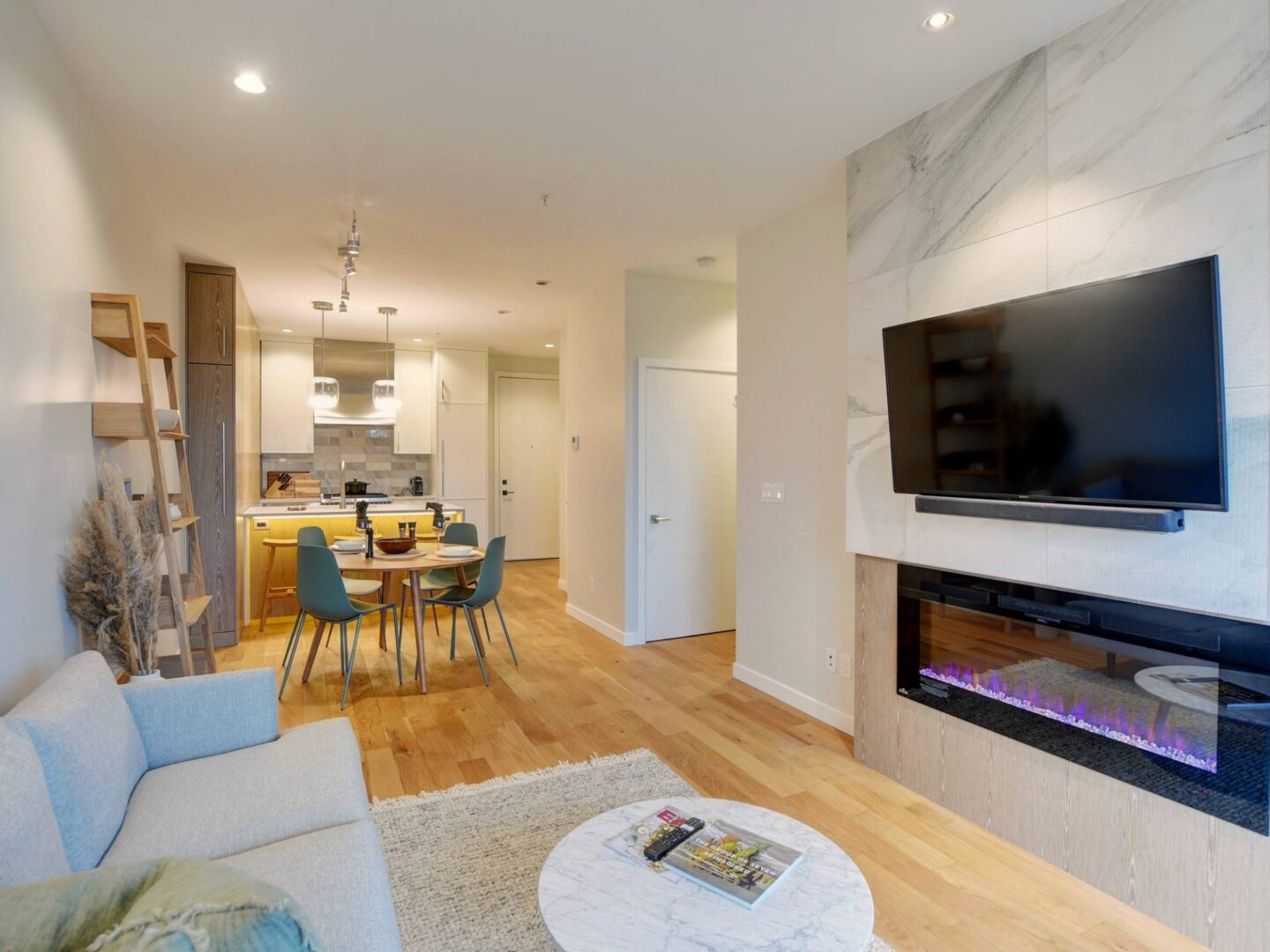Size & Breed Restrictions
Even in a pet-friendly building, your pet’s continued presence depends on following a few critical rules that ensure the “quiet enjoyment” of the property for all residents..
While Victoria is an incredibly dog and cat-friendly city overall, the rental market can be highly restrictive especially the furnished sector. Being prepared with the right documentation and understanding the rules is the single greatest advantage you can have.
Here is your essential guide to securing a pet-friendly rental in Victoria, BC, with your furry companion in tow.

The Reality of Size and Breed Restrictions
In British Columbia, landlords and Strata Corporations (the governing bodies of condos and apartment buildings) have the legal right to impose restrictions on pets. For those relocating with established, often larger, dogs, this is the most significant hurdle.
Understanding the Limitations
Size/Weight Caps: Most modern rental buildings in Victoria have strict weight limits, often capping dogs at 20 lbs to 35 lbs. If you own a large dog (like a Labrador, Golden Retriever, or German Shepherd), you will automatically be excluded from most multi-unit apartment complexes.
Breed Restrictions: While less common than blanket weight limits, some properties, often driven by insurance requirements, may prohibit certain breeds perceived as “aggressive,” regardless of the individual pet’s temperament.
The Impact: Owners of large, well-behaved dogs will need to focus their search on:
- Older, non-Strata-governed buildings (where restrictions may be less formal).
- Single-family house or townhome rentals (where the individual landlord has more flexibility).
- Properties where the rental is a secondary suite in a detached home.
Key Takeaway: Start your search early, be flexible on the unit type, and be honest about your pet’s size and breed from the very first inquiry.

Mandatory Documentation: Going Beyond the Lease
When you find a property that is pet-friendly, expect the property manager to require more than just a pet deposit (which in BC is legally capped at half a month’s rent). They are looking for proof that you are a responsible pet owner who will not cause issues for the building.
The Flea Control Requirement
It is extremely common for Victoria’s larger property management companies to require tenants with pets (both cats and dogs) to provide documented proof of flea control treatments before or at the time of lease signing.
What to Prepare: Be ready to present recent documentation (within the last 3–6 months) showing that your pet is on a vet-recommended flea and tick preventative, such as a prescription medication (e.g., Bravecto, Revolution, or Simparica).
The “Why”: A flea infestation is a costly nightmare for a landlord, requiring professional pest control and deep cleaning of carpets in multiple units. This requirement is a proactive measure to protect the building.
The Pet Resume
For your demographic (mature, established professionals), a Pet Resume is your best tool. It demonstrates responsible ownership and mitigates the landlord’s risk. Include:
- A high-quality photo of your pet.
- Age, breed, and weight.
- Training/obedience certifications.
- Veterinary Reference: Contact information for your vet.
- Previous Landlord Reference: A reference from a previous landlord specifically stating the pet caused no damage.

Essential Pet Owner Etiquette in Rental Properties
Even in a pet-friendly building, your pet’s continued presence depends on following a few critical rules that ensure the “quiet enjoyment” of the property for all residents.
| Etiquette Point | The Right Action | Why It Matters |
|---|---|---|
| NOISE CONTROL | Never leave a barking or howling dog alone for extended periods unless your pet is crate-trained. | Excessive barking is the #1 reason for neighbour complaints and is often grounds for an eviction notice in BC |
| GROOMIN & HEALTH | Maintain regular grooming and proactively treat for parasites (fleas, ticks, worms). | This supports your flea-control commitment and minimizes wear-and-tear (shedding) on the unit. |
| COMMON AREAS | Pets must be leashed and under control in all hallways, lobbies, and elevators. | This ensures the safety and comfort of others, particularly those with allergies or a fear of dogs. |
| THE UNATTENDED RULE | Never leave a dog tied up or unattended on a balcony. | Balconies are a safety concern and a noise concern. The sun exposure and lack of water is also a welfare issue. |
| WASTE DISPOSAL | Clean up after your pet immediately (in all outdoor areas and even in “no pet” zones). | Property managers routinely inspect grounds. Failing to clean up reflects poorly on all pet owners and can lead to fines or the rescinding of pet privileges. |

Conclusion: Plan for a Successful Relocation
Relocating to Victoria with a pet requires extra diligence. For retirees and executives needing temporary, high-quality housing, the best strategy is to be fully transparent and over-prepared.
Have your pet’s documentation ready to go, understand the realities of size and breed restrictions, and commit to being a model tenant and neighbour. Your preparation will not only secure your housing faster but will also show prospective landlords that you and your pet are responsible additions to their community.
- DOWNLOAD YOUR “PET RESUME” BELOW



